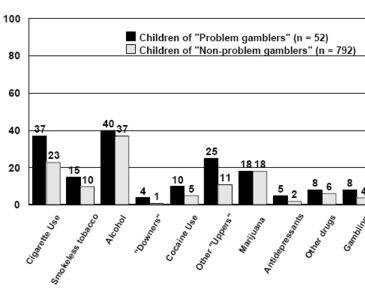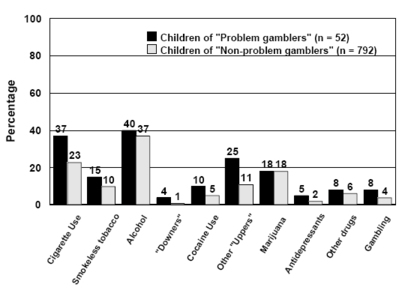Problem gambling has been shown to hold negative consequences for individuals related to the gambler. A study of 844 randomly selected 9th to 12th graders examined a variety of health indicators, including levels of substance use and gambling activity. Students who rated their parent(s) as having a compulsive gambling problem (n = 52) were contrasted with students who rated their parent(s) as having no gambling problem (n = 792). Children of problem gamblers reported higher levels of use for tobacco, alcohol, and drugs, with the exception of marijuana. In addition, children of problem gamblers reported being more involved in gambling than their counterparts. The authors state that children of problem gamblers show “a greater propensity for seeking mood-elevating substances and stimulating experiences” than do children of parents with no gambling problem.
Source: Jacobs, D.F., Marston, A.R., Singer, R.D., Widaman, K., Little, T., & Veizades, J. (1989). Children of problem gamblers. Journal of Gambling Behavior, 5, 261-267.
This public education project is funded, in part, by the Massachusetts Department of Public Health.
This fax may be copied without permission. Please cite The WAGER as the source.
For more information contact the Massachusetts Council on Compulsive Gambling, 190 High Street, Suite 6, Boston, MA 02110.





